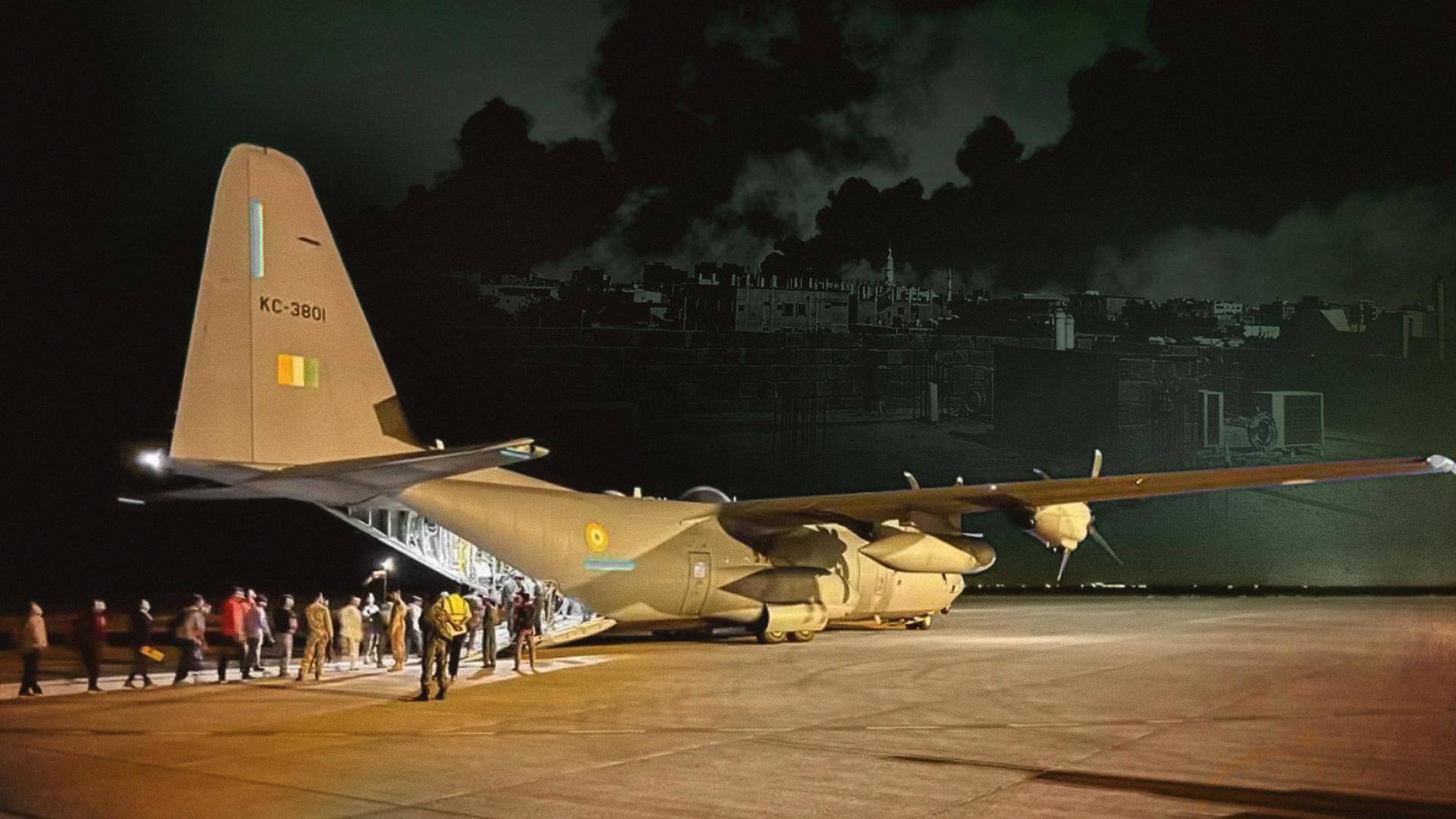
Operation Kaveri: 229 Indians reach home as Sudan conflict rages
What's the story
India brought back home 229 citizens stranded in strife-torn Sudan on Saturday under Operation Kaveri as the army-paramilitary conflict entered its third week. Earlier, the 10th batch of evacuees—with 135 people—departed from Port Sudan to Jeddah on an Indian Air Force (IAF) C-130J aircraft on Friday. Nearly 1,200 Indians have been rescued from Sudan; another flight carrying 40 evacuees is reportedly headed to Delhi.
Context
Why does this story matter?
At least 528 people have been killed in Sudan since the conflict between the country's army and the Rapid Support Forces (RSF), a paramilitary group, began on April 15 over the country's transition to civilian rule. Fighting has continued in Sudan despite an extension of the internationally-mediated truce for foreign nations to evacuate their citizens from the country.
Twitter Post
3,000 Indians were stuck in Sudan before Operation Kaveri began
#OperationKaveri
— Arindam Bagchi (@MEAIndia) April 30, 2023
8th flight carrying Indian evacuees takes off from Jeddah.
IAF C-130J aircraft with 40 passengers is on its way to Delhi. pic.twitter.com/NBjp7Ul7Tw
Rescue
121 Indians rescued in midnight operation
The seventh outbound flight—which brought 229 citizens home from Saudi Arabia's Jeddah on Saturday—landed in Bengaluru, Ministry of External Affairs spokesperson Arindam Bagchi said. Of them, 117 evacuees have been quarantined as they were not vaccinated against yellow fever. On the intervening night of Thursday and Friday, IAF pilots rescued 121 citizens from a remote airstrip in Sudan's Wadi Sayyidna using night vision goggles.
Displacement
75,000 people displaced since beginning of conflict: UN
The United Nations (UN) said that over 75,000 people have been displaced in Sudan since the onset of the violent conflict. Around 16,000 refugees from Sudan were reportedly accepted in Egypt, its northern neighbor, while 20,000 refugees crossed over to Chad in the west. Moreover, about 14,000 people entered South Sudan, which gained independence from Sudan in 2011 after decades of civil war.
Hamdok
Not just war between army or small rebellion: Hamdok
Calling for an end to the conflict, Sudan's former PM Abdalla Hamdok said, "It will be a nightmare for the world. This is not a war between an army and a small rebellion. It is almost like two armies." Notably, Hamdok became the PM after the 2019 military coup but was deposed in the 2021 coup. He was later reinstated but resigned last year.